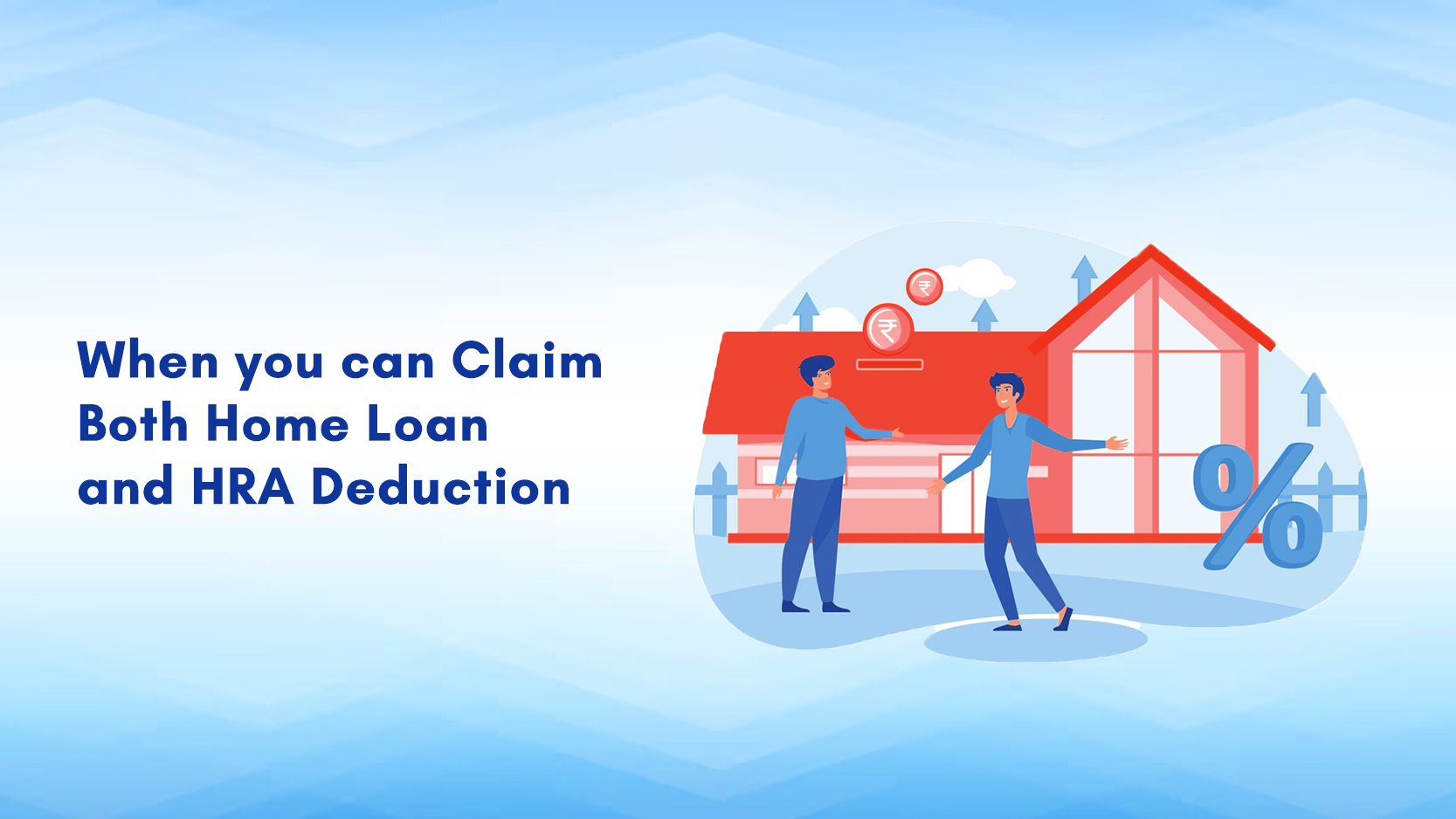Special Offers




Special Offers




17-Jul-2024 | Home Loan

Tax saving is one of the most crucial and noteworthy topics one needs to gain knowledge of. When it comes to tax saving, there are several deductions that can surely make a significant difference. Two of the major deductions provided by Indian Income Tax Act are Home Loan Interest and HRA i.e. House Rent Allowance. However, the question comes is, whether a person is eligible to claim both home loan interest and HRA together or not? The answer to this question is YES!
In this blog, we would understand how and in which circumstances one can avail this dual benefit of home loan interest as well as HRA.
House Rent Allowance is a key component of a person’s salary package that aims to cover the employee’s rental expenses. If you reside in a rented property, you are eligible to claim house rent allowance to reduce your total taxable income, provided meeting certain conditions. The HRA is calculated on the basis of the lowest among the below-mentioned three amounts:
Actual HRA received from the employer.
50% of the basic salary if living in a metro city (Delhi, Mumbai, Kolkata, Chennai) or 40% if living in a non-metro city.
Actual rent paid minus 10% of the basic salary.
As per the Section 24(b) of the Income Tax Act, the homeowners can claim a deduction of the home loan interest paid. The maximum amount of deduction that can be claimed is Rs. 2 lakhs per annum for a self-occupied property. Whereas, there is no such upper limit for a rented property, though the total loss which can be set off from the house property against other income is capped at Rs. 2 lakhs only.
Claiming both HRA and home loan interest simultaneously is possible under the following scenarios:
One common situation where you can claim both HRA and home loan interest is if you own a house in one city but live in a rented house in another city due to work commitments. Here’s how you can claim both:
HRA Deduction: You can claim HRA for the rent paid in the city where you are currently residing.
Home Loan Interest Deduction: You can claim the deduction on the home loan interest for the house you own in another city under Section 24(b).
If you own a house in a city but live in a rented house in the same city for reasons such as convenience or proximity to your workplace, you can still claim both benefits. The conditions are:
HRA Deduction: You can claim HRA for the rent paid for your rented accommodation.
Home Loan Interest Deduction: You can claim the home loan interest deduction under Section 24(b) for the house you own, provided you can justify that the owned house is not suitable for your residence (e.g., distance from workplace, family reasons).
To claim both HRA and home loan interest deductions, you need to maintain proper documentation:
Rent receipts or rental agreement.
Employer declaration (if required).
Loan statement from the bank showing the principal and interest breakup.
Possession letter and completion certificate of the property.
Apart from the interest deduction under Section 24(b), you can also claim a deduction on the principal repayment of the home loan under Section 80C. The maximum limit under this section is Rs 1.5 lakh per annum. This deduction can be claimed irrespective of whether the house is self-occupied or rented out.
Rahul works in Mumbai and owns a house in Pune. He pays Rs 20,000 per month as rent in Mumbai and has a home loan for his house in Pune on which he pays an annual interest of Rs 1.8 lakh. Here's how he claims his deductions:
HRA: Rahul claims HRA based on his rental payments in Mumbai.
Home Loan Interest: Rahul claims the home loan interest deduction for the house in Pune under Section 24(b).
Neha owns a house in Bangalore but rents a house closer to her workplace in Bangalore. She pays Rs 15,000 per month as rent and has a home loan for her owned house on which she pays Rs 2 lakh annual interest. She justifies that her owned house is far from her workplace. Here's her claim:
HRA: Neha claims HRA for her rental payments in Bangalore.
Home Loan Interest: Neha claims the home loan interest deduction for her owned house under Section 24(b).
Double Benefits: Claiming both HRA and home loan interest deductions provides significant tax benefits. Ensure all conditions and documentation are met.
No Double Counting: The rent paid and home loan interest claimed should pertain to different properties to avoid any conflict with tax authorities.
Clarity with Employer: Keep your employer informed about your HRA claim and provide necessary rent receipts to avoid discrepancies during tax filing.
ITR Filing: While filing your Income Tax Return, ensure all claims are accurately documented to avoid notices from the Income Tax Department.
Combining HRA and home loan interest deductions can lead to substantial tax savings for salaried individuals. By understanding the conditions and maintaining proper documentation, you can maximise your tax benefits efficiently. Whether it's due to work commitments or personal convenience, knowing how to navigate these dual benefits can significantly impact your financial planning.
Remember to consult with a tax professional if you have unique circumstances or need personalised advice to ensure compliance with the latest tax laws and regulations. With the right strategy, you can make the most of the tax deductions available and enhance your financial well-being.